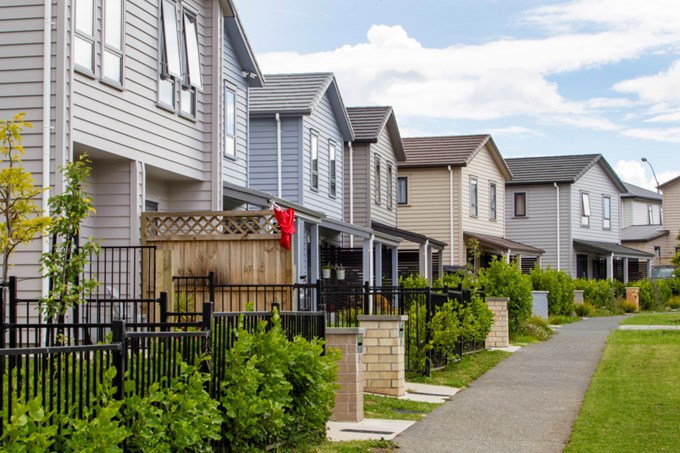Auckland Council’s latest property valuations released today, 8 March 2022, show significant movements across the region, with an average value increase of 34 per cent.
The updated values reflect the likely price a property would have sold for as at 1 June 2021, and will be used to determine the share of rates for the next rating year starting 1 July 2022/2023.
The local board with the largest increase in this revaluation is Aotea Great Barrier, showing a 59 per cent average increase.
The other local board areas with the largest movements are in Māngere-Ōtāhuhu, Henderson-Massey and Maungakiekie-Tāmaki, all of which have seen average increases between 41 and 49 per cent. These areas have all undergone intensification in recent years, and these movements demonstrate the impact of this.
In comparison, the Waitematā area, which has a large share of apartments, has a lower average increase – 15 per cent.
Chief Economist at Auckland Council, Gary Blick says the effects of the Unitary Plan, implemented in 2016 can be seen in the valuations, “We started to see these impacts in the 2017 revaluation but realistically the effect is showing now. The value increases have moved out from the city centre, which is what we would expect as housing in those areas becomes more desirable.”
Standalone dwellings have increased by 34 per cent whilst increases for already intensified housing types like apartments (8 per cent) and flats (27 per cent) are slightly lower.
Group Treasurer John Bishop explains that percentage increases aren’t the only consideration, “It’s worth noting that though we are seeing the highest value increase on Aotea/Great Barrier this year, it is still one of the lowest valued areas in the region at around 43 per cent of the average.”
In this year’s revaluation, industrial properties are a standout increasing by an average of 53 per cent. A rise in online shopping and less demand for office space being potential drivers for the shift.
Trends across residential, commercial, lifestyle and rural have all seen increases as well, though smaller than what was seen in the last revaluation.
Finance and Performance Committee Chair Councillor Desley Simpson says revaluation does not change the amount of money the council collects from rates, “Revaluation helps us make sure we are sharing the rates requirement fairly between properties as valuations move across the city.
“If you think of the budget like a pie, that pie doesn't get any bigger because of revaluation. Your property’s value just determines the portion of the pie that you're going to pay and ensures your portion is the same as others whose properties are valued the same as yours.”
In order to set rates fairly, all councils in New Zealand are required to attribute an approximate value to all properties in their region every three years. The last revaluation was in 2017 and the planned 2020 revaluation was delayed due to COVID-19. The latest revaluations were deferred until March this year so the council could conduct more work on the values as requested by the Valuer General.
Find your property’s value
Individual property data is now available for the more than 590,000 properties in Auckland at aucklandcouncil.govt.nz/revaluation. Property owners will receive valuation notices in the mail, including information on how to object, from next week.
If you don’t agree with the details held for your property, for example, it shows the wrong number of bathrooms, or, if you disagree with the value itself, you can lodge an objection. Information on this will be included on your valuation notice and the Auckland Council website.
Rates support
The council’s Long-term Differential Strategy means the overall average rate for business versus non-business stays the same.
This revaluation shows that lower value properties have increased in value at a faster rate than higher value properties. These properties will have higher rates increases than the average. However, it is important to note that the lower value properties will still be paying less rates than the average value property. Their rates will still be well within the rates affordability threshold of 5 per cent of income.
For those concerned about paying their rates, Councillor Simpson says “We know COVID-19 and changes in alert levels put an added pressure on families already struggling to make ends meet. Rest assured there are options available to you to make life a bit easier.”
For financial support options, go to aucklandcouncil.govt.nz/financialsupport


